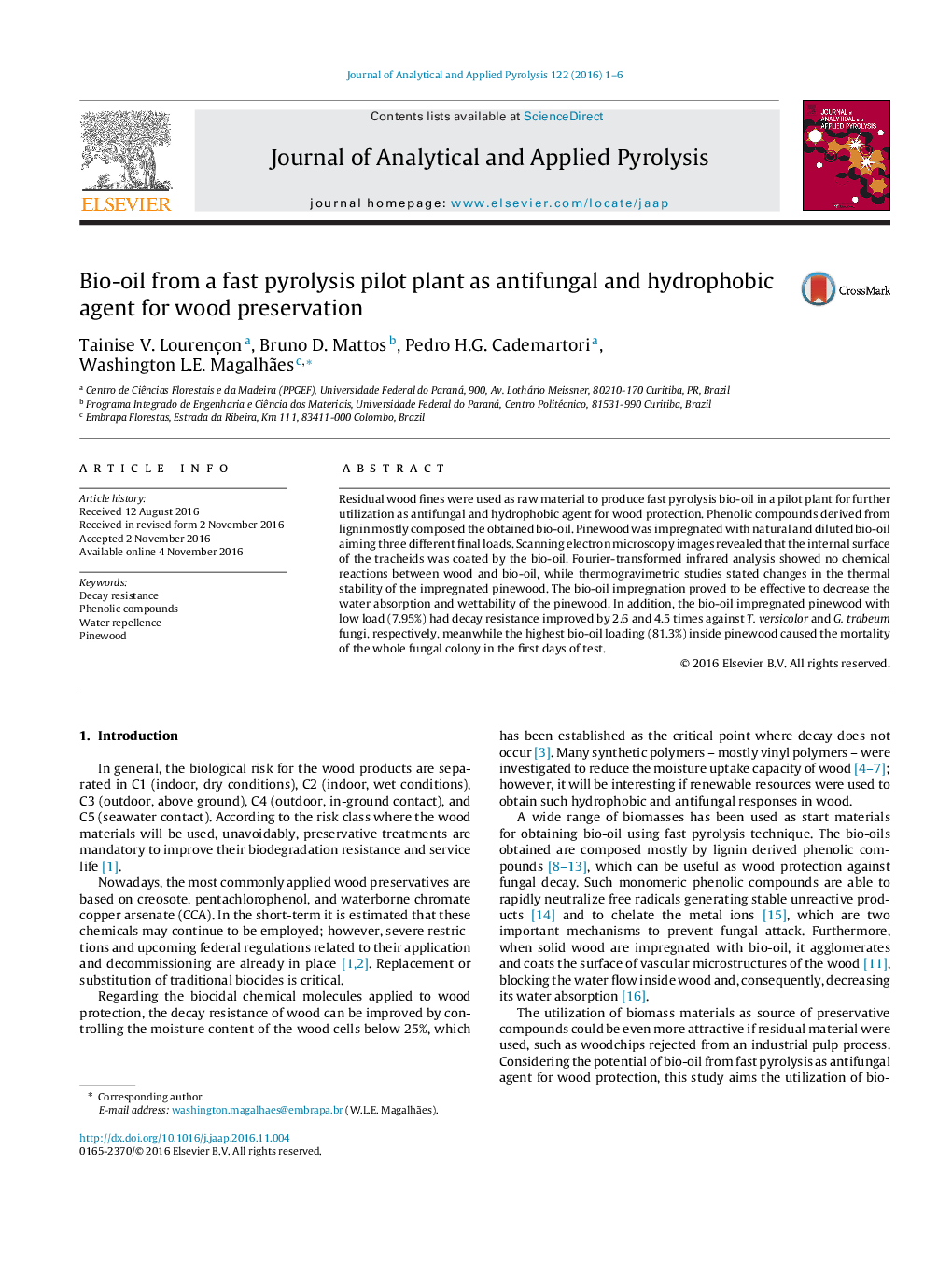| Article ID | Journal | Published Year | Pages | File Type |
|---|---|---|---|---|
| 5134748 | Journal of Analytical and Applied Pyrolysis | 2016 | 6 Pages |
â¢Rejected eucalypt wood fines were used as start material for bio-oil production.â¢Bio-oil was obtained in a fast pyrolysis pilot plant.â¢Bio-oil from fast pyrolysis can be applied as wood preservative.â¢Decay resistance of pinewood at least doubled after bio-oil impregnation.â¢Water uptake can be reduced by bio-oil impregnation.
Residual wood fines were used as raw material to produce fast pyrolysis bio-oil in a pilot plant for further utilization as antifungal and hydrophobic agent for wood protection. Phenolic compounds derived from lignin mostly composed the obtained bio-oil. Pinewood was impregnated with natural and diluted bio-oil aiming three different final loads. Scanning electron microscopy images revealed that the internal surface of the tracheids was coated by the bio-oil. Fourier-transformed infrared analysis showed no chemical reactions between wood and bio-oil, while thermogravimetric studies stated changes in the thermal stability of the impregnated pinewood. The bio-oil impregnation proved to be effective to decrease the water absorption and wettability of the pinewood. In addition, the bio-oil impregnated pinewood with low load (7.95%) had decay resistance improved by 2.6 and 4.5 times against T. versicolor and G. trabeum fungi, respectively, meanwhile the highest bio-oil loading (81.3%) inside pinewood caused the mortality of the whole fungal colony in the first days of test.
